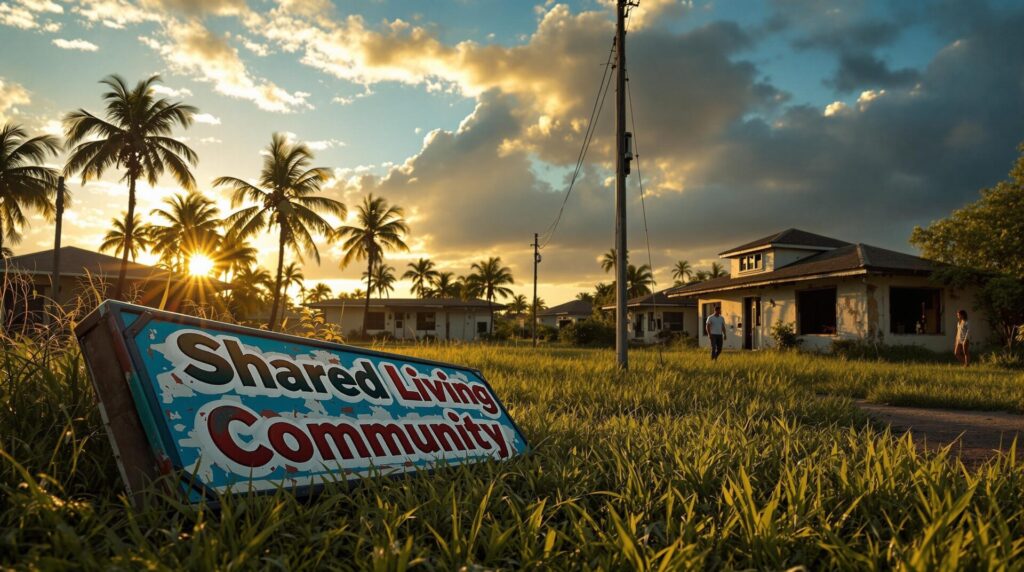Key Takeaways
- Airbnb’s new policy bans off-platform transactions, external app access, and indoor security cameras, placing tighter control on host operations.
- Real estate investors now face rising costs, operational disruptions, and the loss of vital guest engagement tools.
- Alternative platforms and strategies are quickly becoming the preferred path for hosts seeking autonomy, profitability, and freedom from Airbnb’s restrictions.

Airbnb Game-Changer (Not in Your Favor)
A shocking new Airbnb policy change rollout, officially titled the Off-Platform and Fee Transparency Policy, takes effect April 17, 2025—and it has real estate investors sounding the alarm.
Airbnb, once a haven for entrepreneurial hosts, has declared a full-scale crackdown on off-platform communications, external app dependencies, direct guest contact, and even physical access protocols.
All of this falls under Airbnb’s Community Policy, which now gives the company sweeping power to suspend or permanently deactivate a user’s account at its sole discretion for repeated or severe violations.
Is this the end of the entrepreneurial Airbnb era?
Let’s break it down.
How It All Started: A Golden Era of Real Estate Innovation
When Airbnb launched in 2008, it offered a dream scenario—ordinary people could generate passive income, and savvy real estate investors could scale empires.
The platform became a central tool in the short-term rental boom, offering flexibility, guest reach, and room for tech innovation.
Entrepreneurs plugged in automation tools, upsold add-ons, built mailing lists, and even guided repeat guests into off-platform bookings.
It was the Wild West of hospitality—and investors loved it.
Airbnb welcomed it—until they didn’t. Now, the very tactics that helped Airbnb dominate the travel space have become punishable offenses.
With the platform’s recent Off-Platform and Fee Transparency Policy, Airbnb is locking down the ecosystem and rewriting the rules of engagement.
Implications for Real Estate Investors: Navigating a Treacherous Landscape
For real estate investors, these policy updates go far beyond minor housekeeping.
This is a full-scale shift in power and platform control.
Revenue Loss and Operational Disruption
Airbnb now forbids asking or encouraging users to move bookings off the platform, including future or repeat reservations.
You can no longer extend stays directly, offer off-platform discounts, or even cancel a booking to rebook off of Airbnb.
If you’ve been using tools like StayFi to collect emails via Wi-Fi opt-in, that’s under fire too—Airbnb prohibits collecting or using contact info for marketing or unrelated communication.
Fee Transparency Mandates
Any mandatory fees—pet fees, resort fees, HOA fees, taxes—must be disclosed in Airbnb’s designated fields or baked into the nightly rate.
RELATED CONTENT
Collecting reservation-related payments off-platform is now banned, with few exceptions for hotels or Airbnb-approved software-connected hosts.
This also kills passive upselling models, like charging for pool heating or VIP add-ons.
Guest Identity Restrictions and Data Use
Hosts can’t request personal contact details before a booking, solicit email addresses after a booking for marketing, or require government ID uploads unless legally mandated.
Violating this part of the Community Policy can result in immediate suspension or removal of listings.
Review and Feedback Control
Hosts are no longer allowed to request guest reviews or feedback through off-platform forms, QR cards, or surveys—unless they’re an approved hotel partner.
Airbnb wants all guest insights flowing through its review funnel, enabling it to suppress low-rated listings and elevate the ones it favors.
App and Access Restrictions
Hosts cannot require guests to use third-party apps (like Enso Connect, TouchStay, or Guesty Locks) to access the property.
Physical access must be possible without an app or additional registration, with only rare legal exceptions.
This specifically targets enterprise-level operators who built entire infrastructures around custom access systems to gain independence from Airbnb.
All of this folds into Airbnb’s broader effort to keep guests loyal to its ecosystem—not yours.
You may have built a business on Airbnb, but now Airbnb wants full control of that business.
Airbnb’s New Off Platform Policy is INSANE
Airbnb, in a wild attempt. to compete with companies like wonder and other professional hosts, are implementing a change that will wipe out over 100,000 listings.
Sean Rakidzich
What Comes Next: Alternative Platforms and Hosting Strategies
With Airbnb clamping down, many real estate investors are pivoting—fast. Here’s what’s rising as the smarter, safer bet: With Airbnb clamping down, many real estate investors are pivoting—fast. Here’s what’s rising as the smarter, safer bet: long-term rentals are becoming increasingly appealing, offering stable income and less regulatory hassle. However, with the rush to adapt, some investors have unwittingly fallen prey to fake section 8 housing scams, where fraudulent listings promise government-backed rent payments but deliver nothing but disappointment. As the market shifts, vigilance and thorough vetting of tenants will be crucial in safeguarding investments.
1. Direct Booking Sites
Platforms like Boostly, Uplisting, and OwnerRez help hosts build and manage their own branded websites to take bookings directly. These tools integrate calendars, handle payments, and bypass Airbnb’s fees and restrictions.
2. Other Short-Term Platforms
Vrbo and Booking.com offer broader listing freedoms. Houfy is gaining traction for its fee-free model. These platforms don’t restrict off-platform communications to the same extent, making them investor-friendly alternatives.
3. Mid-Term Rentals (30+ Days)
Pivoting to furnished mid-term rentals for traveling nurses, digital nomads, and business travelers allows investors to skip short-term regulations and Airbnb entirely—while still earning above-market rent.
4. Co-Living and Corporate Housing
Targeting long-term professional stays through corporate housing partnerships or co-living setups gives investors recurring cash flow without OTA dependency.
5. Boutique Hotel or Licensing Models
Some investors are going the legal distance—applying for hotel licenses to run Airbnb-like properties under their own terms. This route restores autonomy over deposits, fees, access, and communication.
6. Whitelabel Platforms and Hybrid Strategies
Hospitable, Smoobu, and other PMS tools let investors manage multiple OTAs plus direct bookings from one dashboard. Pair these with smart CRMs and you’ve got a semi-independent hospitality brand—without Airbnb calling the shots.
The bottom line: this policy shift may mark the end of Airbnb as a hands-off income generator, but it could be the beginning of investor-owned short-term rental empires. As regulations tighten and property management responsibilities increase, many casual hosts might exit the market, leaving space for more professional operators. These investors, with deeper pockets and greater expertise, could capitalize on landlordfriendly housing market trends to optimize their returns and scale their operations. Consequently, the landscape of short-term rentals may evolve into a competitive arena dominated by those who can navigate the complexities of compliance and property management efficiently.
Assessment
Airbnb began as a disruptor, giving investors the keys to a brand-new kingdom. But now, that kingdom is being fenced off. The Off-Platform and Fee Transparency Policy, under the guise of protecting the community, has instead removed core operational freedoms and leveled a direct threat to investor-led hosting models.
While some investors may comply and adapt, many are waking up to a hard truth: Airbnb is no longer a partner. It’s a gatekeeper. And the only way to survive—and thrive—is to build beyond its walls.
Related Content:
- U.S. Unleashes Unprecedented Defense Against Foreign Real Estate Infiltration Near Military Bases
- Real Estate Markets on High Alert as States Mobilize to Counter Trump Administration Threats
- Co-Living: Housing Revolution Sweeping Across U.S. (Win/Win or Rental Gotcha?)
- The Death of Shopping Malls (From Concrete Commerce Giants to Luxury Living Communities)





















